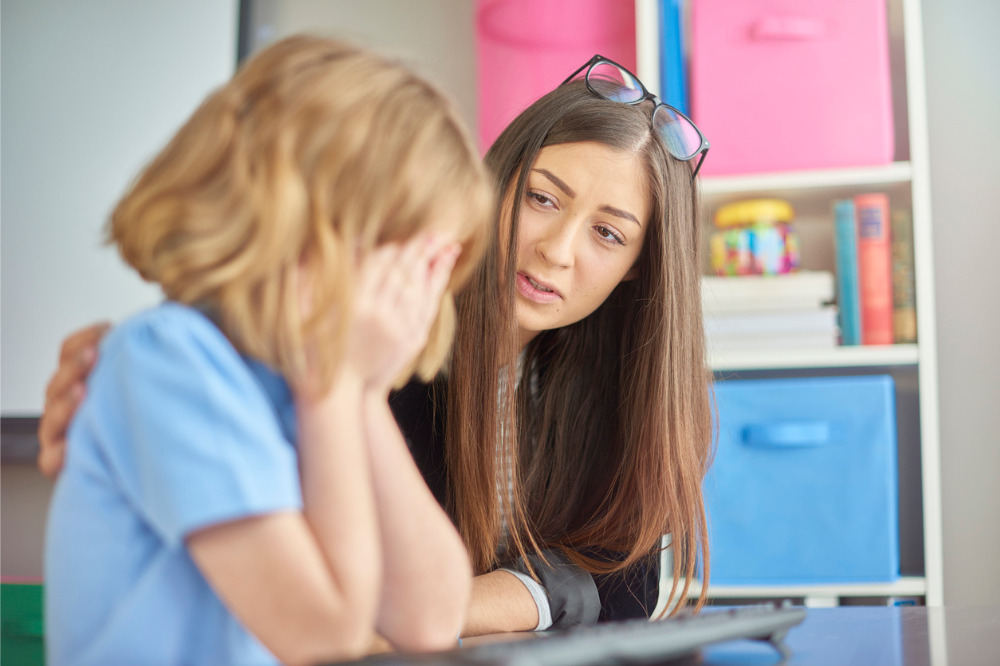
The impact of the Covid-19 pandemic is likely to be felt by young people for years to come, demanding urgent, targeted action by governments to tackle what has become a rapidly worsening physical and mental health crisis, a new report says.
The study, conducted by the University of the Sunshine Coast, found that despite many existing school health promotion resources, there has been a glaring lack of tailored guidance to specifically aid schools in navigating physical and mental health needs for young people during and after the pandemic.
To address this, researchers from the University, led by lead author and chief investigator Dr Joseph Scott, have created an International Framework for School Health Promotion, published recently in the Journal of School Health.
‘A critical and urgent need for targeted action’
Dr Scott said worldwide restrictions to limit the spread of the COVID-19 virus precipitated a growing and long-term educational and health crisis among children and adolescents.
“This problem is not just going to go away on its own,” Dr Scott said. “There is a critical and urgent need for targeted action,” Dr Scott said.
“Globally, falling physical activity levels, increasing sedentary behaviours and too much screen time were significant issues before the global outbreak of coronavirus. The pandemic has exacerbated these existing physical and mental health risks.”
Dr Scott said that as children gradually returned to the classroom after the extended periods at home, it became clear that many were not only behind educationally but also had higher levels of distress, poor sleeping and eating habits, and had done little exercise for months on end.
‘A step in the right direction’
Dr Scott, UniSC Clinical Psychologist Dr Alex Metse and Dr Lynette Vernon from Edith Cowan University, developed the global framework by examining emerging literature to find gaps and advance understanding and practices in school health promotion.
“School principals and teachers and parents around the world who are scrambling to support the escalating health and wellbeing needs of young people are an important piece of the puzzle,” Dr Scott said.
“Schools and teachers remain well-positioned to address these needs, however they require targeted guidance and support to evaluate and reorient existing health promotion programs. This framework is a first step in the right direction.”
Dr Metse, an expert on sleep and mental health, said given that adequate physical activity and optimal sleep and nutrition were strongly linked with mental and physical health, schools needed to explore ways their programs could cultivate environments to promote healthy lifestyle habits in children.
“Sleep is essential for physical, cognitive and emotional development. We know many people’s sleep, including young people, were negatively impacted by the pandemic. Schools are a key setting to help rectify the residual impact of the pandemic on sleep.”
Key International School Health Promotion Framework strategies:
- Schools serve as health promoters. The framework is designed to be used as a tool for educators to evaluate existing school programs and strengthen connections with parents and community to bolster internal and external support for young people.
- Provision of support for school leaders and teachers. Teachers and principals face additional pressures from the pandemic. Collaboration is needed between various government and community sectors to support them to deal with its complex systematic impacts.
- School health programs address multiple health risk behaviours. It is recommended schools and teachers prioritise curriculum and education on physical activity, sleep, nutrition and mental health.
- Focus on social and emotional learning. A key emphasis is on empowering children and adolescents to improve their own physical and mental health and well-being.
Dr Vernon’s research focuses on young people, technology and wellbeing. Drawing from the findings of studies she conducted in 2015, 2017, 2018 and 2019, Dr Vernon said poor-quality sleep has been consistently linked to adverse mental health outcomes, including depression, disruptive behaviours, and decreased school satisfaction.
“It's critical that schools address this issue directly,” Dr Vernon told The Educator, adding that some initiatives could include incorporating sleep education into the curriculum and a whole-school initiative to launch as ‘Sleep and Technology Week’ competition for students.
“Schools should seek to make sleep hygiene a cornerstone of their educational curriculum, much like other health-oriented teachings such as sun safety, physical exercise, and nutritious eating,” she said.
Dr Vernon said this would allow students to learn about the connections between technology use at night, poor sleep, and decreased performance during the day, thereby equipping them with the necessary skills to manage their screen time before bedtime.
Dr Vernon said a 'Sleep and Technology Week' competition could encourage students to use diaries to track their sleep and digital device use.
“Such monitoring initiatives can foster healthier habits, offer an interactive way to enhance sleep hygiene and gather data for program evaluation.”
Below, Dr Vernon lists four specific steps schools can take to reduce screentime and develop healthier digital habits.
- Schools must map and analyse existing health initiatives, assessing their pros and cons, particularly regarding screen time and sleep hygiene.
- Collaborate with sleep scientists, mental health professionals, and Sleep Foundations to develop a comprehensive, evidence-based curriculum on sleep hygiene and responsible technology use.
- Schools should also loop in parents in their endeavours to enhance children's sleep habits. Parent-teacher meetings/workshops can serve to discuss strategies to curb screen time and foster better sleep at home.
- Restructured programs should undergo regular evaluations to ensure their effectiveness. Evaluations may involve student surveys, parental feedback, and tracking changes in academic performance and classroom attention levels.


